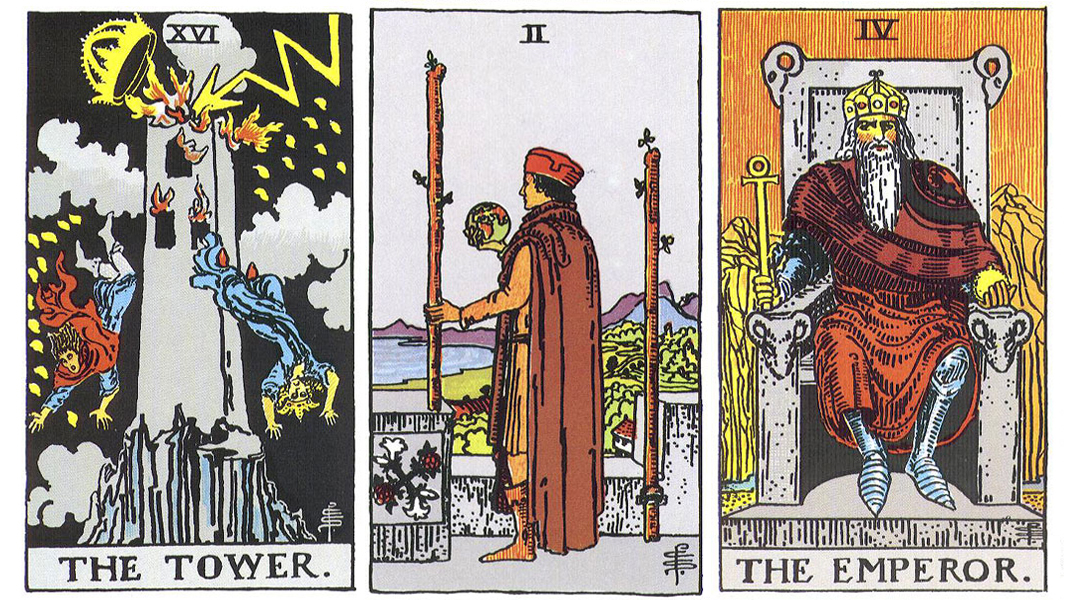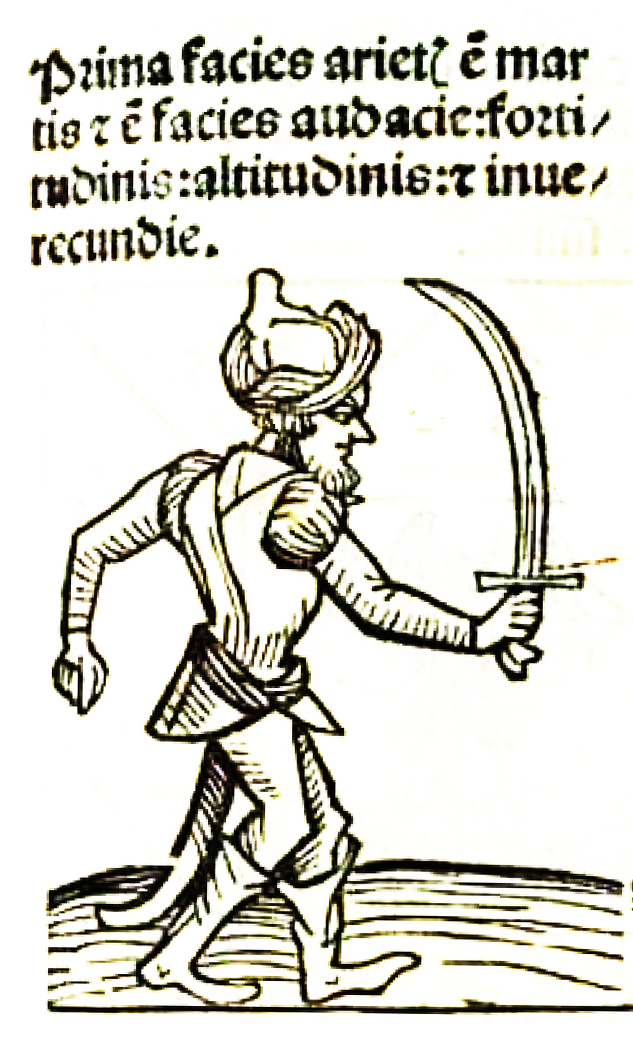This series, "Reading the Decans," will be my personal journey through the 36 decans of the astrological year and the 36 minor arcana of the tarot associated with them. Roughly every 10 days, I'll post the next installment, until the year is complete.
Decans - 10-degree sections of the sky, 10-day intervals of the year - have a profound place in magical history. Thought to be dwelling places for spirits, gods, and other mysterious figures, they've provided inspiration for magical workings for centuries. In the astrological system of essential dignities popular in the Renaissance, they played a minor role, ranking last after rulership, exaltation, triplicity, and term. But their magical history resonates in the tarot, thanks to the correspondences used by the Golden Dawn. The Golden Dawn used the decanic correspondences to inform its understanding of the nine minor arcana numbered 2-10 in each of four suits. Therefore as tarot readers we have a particularly direct line to decanic thinking. In these essays, I'll be drawing connections between the decanic minor arcana of the Rider Waite Smith tarot and their associated major arcana. Although there are many sources for decan imagery (which you should explore in Austin Coppock's 36 Faces, an invaluable source text for this work), I will primarily reference the Latin edition of the 11th-century Arabic text known as the Picatrix.
We begin with the first decan of Aries.
2 of Wands: Aries I
Decan ruler (Chaldean): Mars
Hermetic Title: Dominion
Corresponding majors: The Tower (Mars) and The Emperor (Aries)
Dates: March 21 -30
With the 2 of Wands we begin a new year. The vernal equinox balances the hours of light and darkness, but from this point forward we will see only increasing light until the first decan of Libra (2 of Swords); from September 21st to March 20th, the moon will assume her queenship. In a sense, we of the northern hemisphere are now entering the sun's realm.
Enter the patriarchy
Mars ruling this first decan of the year, as he will rule the last, in his diurnal domicile sign of Aries, making this the most martial of decans. (Mars also rules the first decan of his nocturnal domicile sign, Scorpio, the 5 of Cups.) Thus we see themes of fire, light, sun, and heat. If there is a more 'masculine' card than the 2 of Wands in the minor arcana, I don't know what it is. Although as readers we sometimes prefer to be delicate about things, let's not mince words: the Tower is a phallic symbol and a testament to the maleness of Mars. The ram of Mars' diurnal sign, Aries, is perhaps most famous for his head-butting, macho conflicts with others over territory and mating rights. Although Pamela Colman Smith's figure appears to be serenely looking over a world of possibilities, don't be fooled! The energy fueling this card is rutting, dominating, spoiling for a fight. There will be breakages, conquests, and headaches for all. In the image of a man holding a globe in his hand, we see a precursor to colonization.
'Audacie, fortitudinis, altitudinis et inverecundie'
Images of this decan are consistent, depicting an armed warrior. Themes of red and black, the colors of Mars, run through them. Sometimes he wields an axe, sometimes a sword. Sometimes he is described as restless, sometimes as angry. The Latin edition of the Picatrix describes him as "audacie, fortitudinis, altitudinis et inverecundie": bold, strong, tall, and shameless. The 2 of Wands is locked and loaded, ready for battle and sex. We've all seen men carried away by the spirit of combat and the spirit of desire, and the truth is that those two are not so very different.
The Lord of Dominion does not question, equilibriate, or second-guess. The Ram doesn't pause and say, "Why don't we use our words?!" No - he smashes headfirst into his opponent, and you get the sense that if he didn't have an opponent, he'd simply smash his head into the nearest tree.
Soil and seed
All this violence, while graphic, is not pointless. With his iron plow or cultivator, the spring farmer must break a soil crusted over by winter's inertia. The sperm must break the wall of the ovum for the new life to take hold. In this first act of rupture and planting, a whole life cycle takes root - that's why we see the entire globe held into the hand of the 2 of Wands. (Interestingly, I drew this card once on the first day of the school year, and my schoolteacher husband got hit on the head by a world map in a classroom. Poor guy got a concussion, too.) You can call it planting time or you can all it spring cleaning. You can call it a paradigm shift between the old world and the new world. You can stress the destructive power of this face, or its power to fertilize. The point is that there is no looking back.
The Tower and the Emperor
The two major arcana associated with the 2 of Wands clearly illustrate its stories. In the Tower, we see the radical eviction of the old order - or, the volcanic eruption of the seed at climax. In some versions of the Tower of Babel story, God splits the tongues of humanity to save us; to return our attention to working together, to cooperative agriculture, to the survival of the species. The act is simultaneously traumatic and merciful: as Leonard Cohen puts it: "There is a crack in everything - that's how the light gets in." The protective armor of the Emperor, like the iron farming implement, is hardened for a purpose: to break through obstacles and start something new. He may seem cruel; he may lack listening skills, but he is clothed in red, the color of the lifeblood. Ultimately, what he does is in service of life itself.
The Takeaway
When you draw the 2 of Wands, don't be afraid! If there is ever a time for a bold plan of action, it's now. Steel yourself to the task and remember that the longest journey begins with a single decisive step.
On First Looking into Chapman's Homer, by John Keats
Much have I travell'd in the realms of gold,
And many goodly states and kingdoms seen;
Round many western islands have I been
Which bards in fealty to Apollo hold.
Oft of one wide expanse had I been told
That deep-brow'd Homer ruled as his demesne;
Yet did I never breathe its pure serene
Till I heard Chapman speak out loud and bold:
Then felt I like some watcher of the skies
When a new planet swims into his ken;
Or like stout Cortez when with eagle eyes
He star'd at the Pacific—and all his men
Look'd at each other with a wild surmise—
Silent, upon a peak in Darien.

